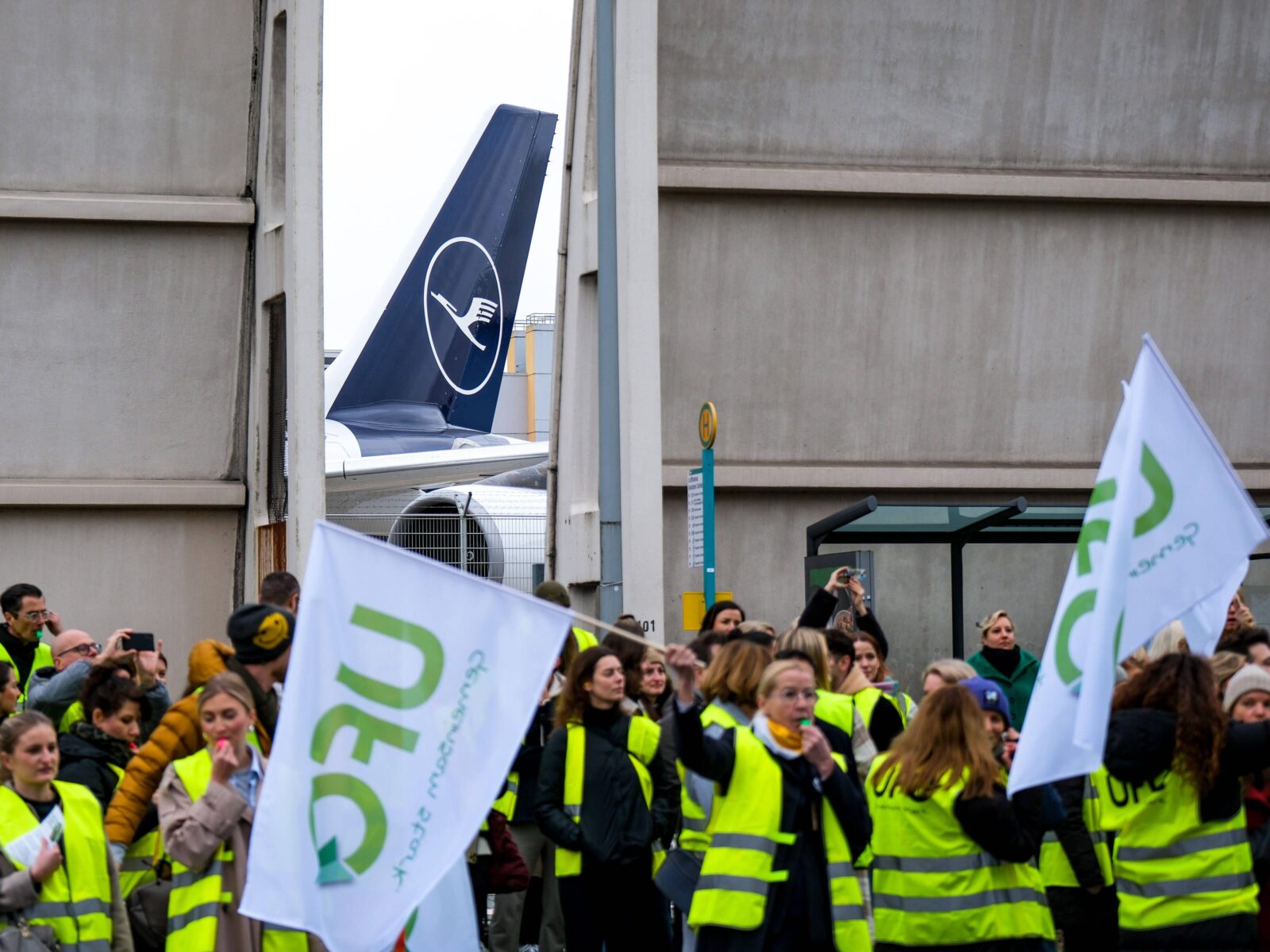
Strike action by flight attendants and ground staff at the German flag carrier Lufthansa cost the airline approximately €350 million (US $372 million), and short-term bonuses and pay raises to settle the dispute will cost Lufthansa a further €100 million by the end of June.
As a result of the strike action, Lufthansa said its losses in the first quarter from January to March 2024 had ballooned to €849 million compared to €273 million in the same period in 2023.
The results are for the entire Lufthansa Group, which includes its namesake airline, as well as group subsidiaries such as Austrian and Brussels Airlines, which have also been affected by industrial unrest, and low-cost subsidiary airlines like Discover, where pilots and flight attendants have staged walkouts in the last few months.
The bulk of the first quarter losses, however, can be attributed to strike action by ground staff and flight attendants at Lufthansa, where thousands of employees represented by the Verdi United Services Union and the UFO Independent Flight Attendants Organisation staged a number of so-called ‘warning strikes’ to demand higher wages.
The walkouts not only effectively grounded Lufthansa for up to 48 hours at a time but also impacted demand for short-term travel bookings as wary passengers avoided Lufthansa due to the uncertainty that their flights might be cancelled.
Lufthansa said on Monday that travel demand has now recovered for the summer months but that the airline is still struggling to ramp up capacity to pre-pandemic levels, blaming delays in receiving new aircraft, as well as ongoing efforts to improve punctuality and operational performance.
The airline group is currently forecasting its financial performance for the second half of the year to beat 2023, but “yet unforeseeable effects of the recent escalation of the Middle East conflict and further geopolitical uncertainties” could still have a negative effect on Lufthansa.
On Sunday, Lufthansa took delivery of its first Airbus A350-900 featuring the new ‘Allegris’ cabins, but when the aircraft goes into commercial service in the next few months, it will be flying without a First Class cabin because of delays in developing the seat.
Lufthansa is not expected to be able to install the First Class seating until close to the end of the year, and in the interim, the space at the front of the aircraft will remain empty.
Related
Mateusz Maszczynski honed his skills as an international flight attendant at the most prominent airline in the Middle East and has been flying ever since... most recently for a well known European airline. Matt is passionate about the aviation industry and has become an expert in passenger experience and human-centric stories. Always keeping an ear close to the ground, Matt's industry insights, analysis and news coverage is frequently relied upon by some of the biggest names in journalism.







